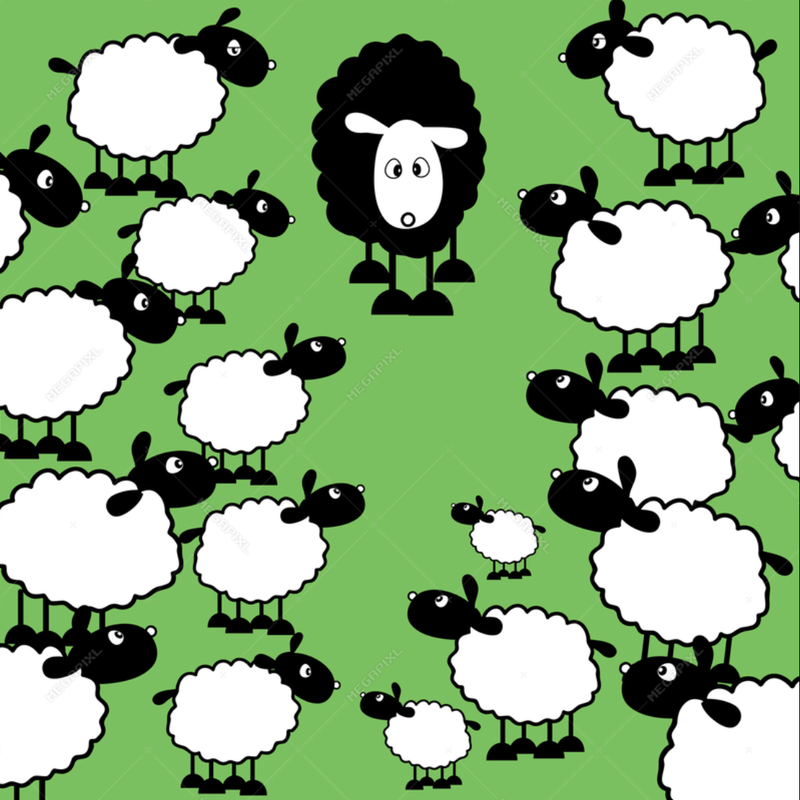|
From my earliest memories, Dad was in debt. I wasn’t told directly how The Debt (better known as The Debt) came to be such an unwelcome but close member of the family, but it didn't take much to figure out it was the black sheep. As the years rolled on, I picked up bits and pieces about Dad borrowing money from friends to build “The Business,” another complicated family member. This I did know: The Debt weighed heavily on our very existence. In my young mind, The Debt explained why we didn’t do repairs on the house and why we never stayed in hotels or took nice vacations. The ever-present Debt explained why we all wore hand-me-downs, held jobs from an early age, got haircuts at home, ate off of paper plates, and drank out of orange juice cans. Because of The Debt, we understood we were expected to pay for our clothes, sports equipment, dance tickets, and student activity cards, and we knew to borrow pocket change from each other rather than from our parents.
Living with The Debt meant forgoing most material things and, by the same token, it meant showing gratitude for receiving anything new, even basics like toothbrushes and underwear. Fortunately, we never went hungry. Mom knew how to stretch a dollar further than anyone I know. Because she couldn’t rely on regular paychecks, when she did have money she’d stock up on bulk foods and day-old bakery goods, which she’d squirrel away in the basement storage room for lean times. But we were raised on more than day-old bread. We were raised on dreams--Dad’s dreams. His dreams tasted good on the tongue when he led us serpentine-style marching through Tanner Manor singing, “Give me some men who are stouthearted men!” He’d make his "millions” one day, he’d assure us, and for those moments his dream-talk made The Debt feel small and conquerable. But when the singing and hype and rah-rah subsided, the dreams turned bitter. Although I later learned some of my older siblings helped keep the debtors at bay, I was too young and felt powerless to make a difference. So, year after year, The Debt remained with us. Then came Dad’s big chance to kick The Debt out of our family once and for all. After years of political wrangling over two proposed freeway routes through our sleepy suburban town (both of which intersected with our precious home), the state of California offered to buy property from anyone whose home lay in the proposed path. In other words, the law of eminent domain cracked open a merciful door for Dad to sell the house at its current market value, purchase another home of equal value, then liquidate the asset to get out from under the financial burden he carried for years. Even still, when he first heard about this possibility from neighbors considering the same option, the idea seemed too good to be true. However, by my junior year in high school, plans were afoot for selling the place back to the state. Fortuitously for Mom and Dad, real estate values had boomed in the two decades since they first purchased Tanner Manor, so they would eventually make good money on the transaction, but leaving Tanner Manor behind came at a great personal cost to me. Meanwhile, Bryan was preparing to fly to Honduras where he would spend his sophomore year living with our older brother Mark. With no end to the tasks and with family members coming and going in all directions, the sheer activity masked the gravity of this monumental move until, in one unplanned, miserable moment, Bryan and I broke down crying. Tanner Manor was, after all, the only home he and I had ever known, and, just as we both rightly suspected, we would never return to the place that held our most cherished childhood memories. To move into the new house, we had to drastically downsize, so we boxed up what we could while pieces of our lives lay scattered about us or were simply tossed out helter-skelter until our beloved home became a mere shell. Deserted and empty, Tanner Manor stood as a house with no soul. After Bryan left the country, life became a bit of a blur. When the dust began to settle, I found myself as the only child living with my parents in a fairly new but uncomfortably modern house in Pasadena. So, I lived out my senior year, commuting to South Pasadena for seminary, school, and just about everything. Even though Mom tried to make the new place feel like home, I felt unanchored without my Tanner Manor. A few years later, Dad would sell the Pasadena house, allowing him to shed the heavy burden of owing others money. However, although the weight and worry of living with The Debt was finally lifted from his shoulders, scars of financial uncertainty stayed with me ever after.
0 Comments
Leave a Reply. |
Meet JanetI'm the twelfth of 13 children. I was born into a poor family rich in blessings. We lived in South Pasadena, California on top of a hill in a big house we called Tanner Manor. These are my stories of growing up there. Archives
June 2024
Categories |

 RSS Feed
RSS Feed